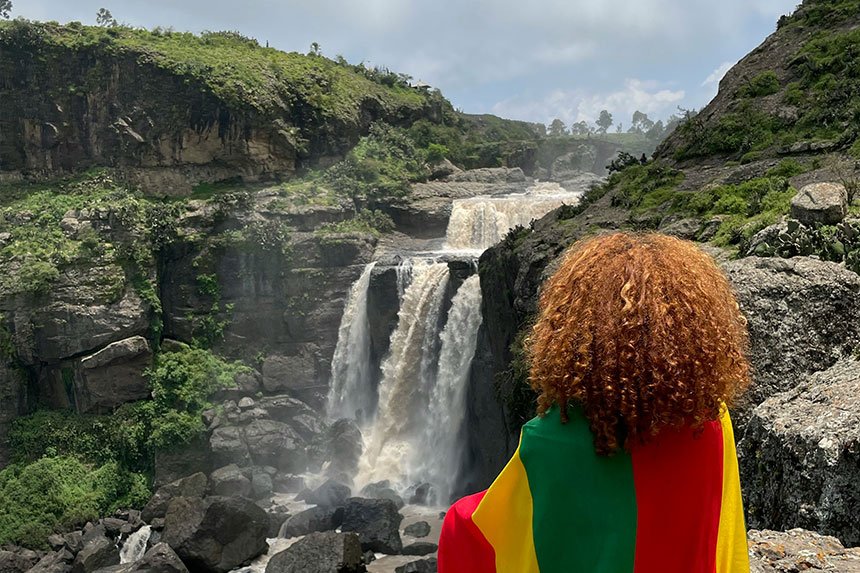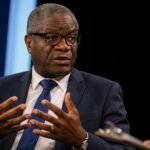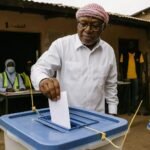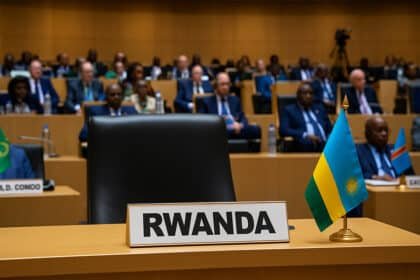Ethiopia and South Africa are laying the groundwork for a strengthened tourism partnership, leveraging their growing engagement under the BRICS alliance. This renewed focus was confirmed by South Africa’s Ambassador to Ethiopia, Nonceba Losi, in a recent interview with the Ethiopian News Agency (ENA).
With Ethiopia officially joining BRICS in 2023, new avenues of cooperation have opened between Addis Ababa and Pretoria — particularly in the tourism sector, where both nations see vast untapped potential.
BRICS as a Platform for Tourism Growth
“There is a track of tourism ministers under BRICS, and we would love to ensure these countries work with each other and visit each other,” said Ambassador Losi. “The population within BRICS is massive, and we can leverage that for economic development and increased tourist flows.”
According to Losi, the South African Embassy in Addis Ababa is already working on concrete proposals and joint programmes to encourage bilateral tourism. These include initiatives to attract more South African tourists to Ethiopia and strengthen the visibility of Ethiopian destinations within the South African market.
The ambassador recalled that South African President Cyril Ramaphosa had recently praised the progress of urban and tourism projects in Addis Ababa, noting growing public interest back home. “I have received so many calls from South Africans who would love to visit Ethiopia,” Ramaphosa said, highlighting the appeal of Ethiopia’s cultural heritage and natural beauty.
Technical Cooperation and Park Management
In addition to boosting tourist arrivals, Ambassador Losi emphasised the potential for technical collaboration. South Africa, known for its world-class national parks such as Kruger Park, could share expertise in wildlife protection and park management.
“We have highly qualified rangers in Kruger Park and other national parks. We are willing to explore cooperation in that area,” she noted, adding that protecting Ethiopia’s diverse ecosystems could be enhanced through such knowledge sharing.
A recent diplomatic visit by Losi and other foreign representatives to Bale Mountains National Park underscores the shared commitment to preserving natural heritage and developing eco-tourism strategies.
Ethiopia Embraces Its BRICS Role
For Ethiopia, its entry into BRICS represents both a diplomatic milestone and a strategic opportunity. Speaking alongside Losi, Ethiopia’s State Minister of Tourism, Sileshi Girma, highlighted the significance of BRICS as a global tourism platform.
“We are very lucky to be part of BRICS,” he stated. “Think of India, Brazil, China, South Africa and others — together, that’s a significant portion of the world’s population.”
The Minister echoed the view that BRICS can serve as a powerful lever for tourism diplomacy, infrastructure development, and job creation. With Ethiopia’s natural and cultural assets, there is growing confidence that greater connectivity with BRICS countries can translate into real economic impact.
Outlook: A Strategic Partnership in Motion
Ethiopia and South Africa’s shared commitment to tourism development within the BRICS framework reflects a broader vision for South-South cooperation. As both countries explore new areas of exchange — from tourism flows to technical training — they are setting the stage for a stronger, more integrated African presence within global multilateral groupings.
By combining strategic planning, people-to-people engagement, and multilateral platforms like BRICS, Ethiopia and South Africa are not only enriching their bilateral ties but also contributing to a more connected and resilient African tourism sector.

















